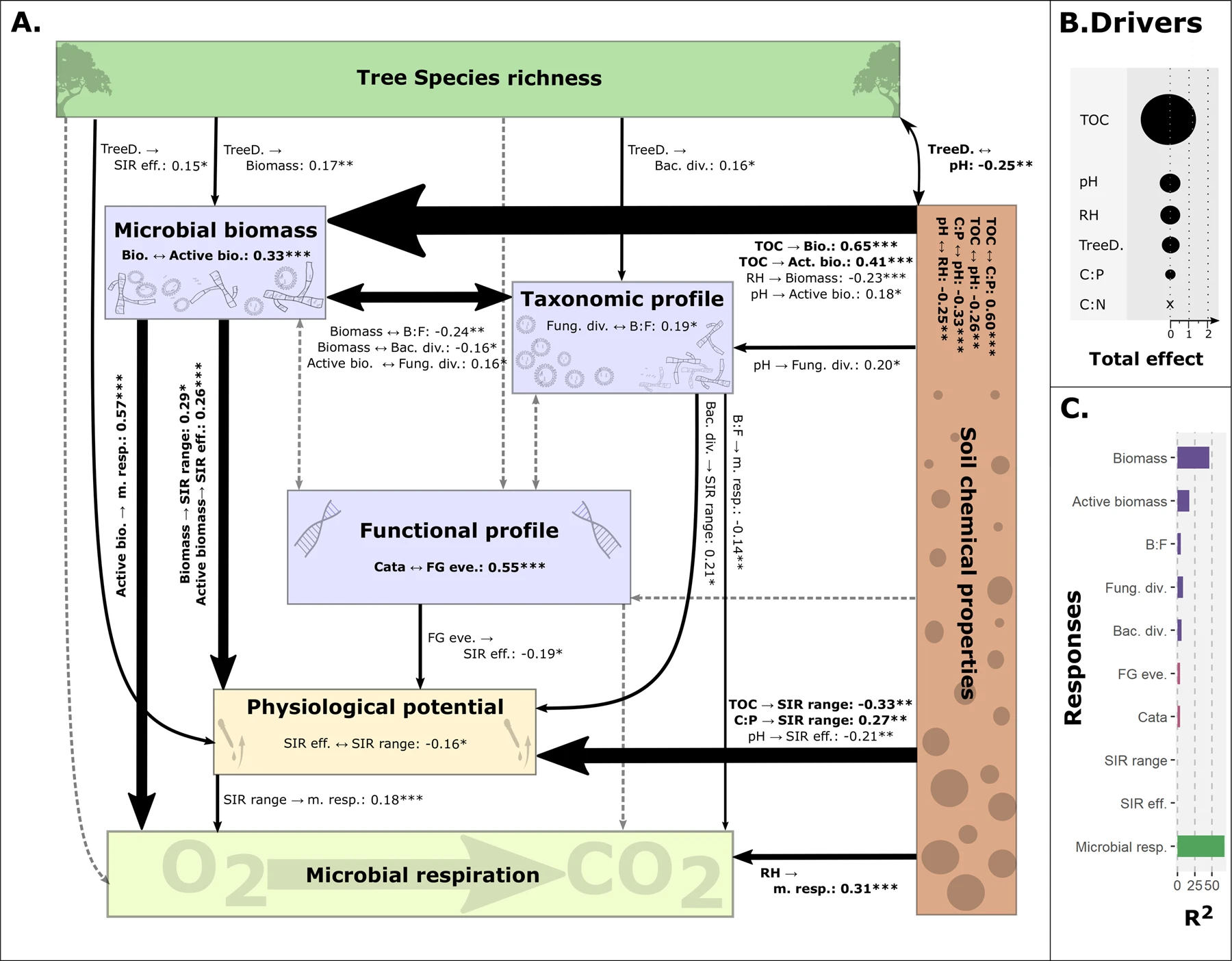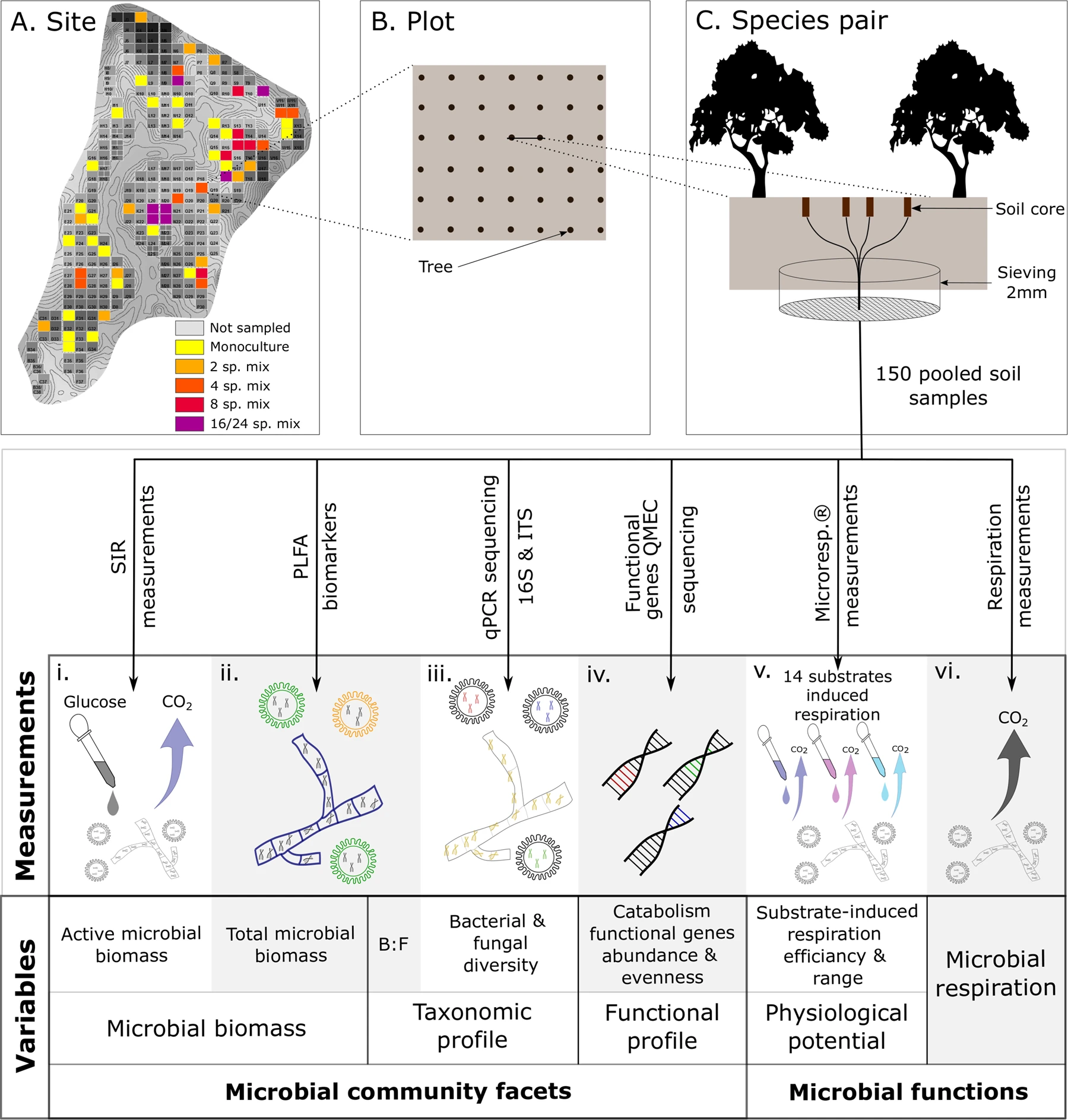Microbial respiration is critical for soil carbon balance and ecosystem functioning. Previous studies suggest that plant diversity influences soil microbial communities and their respiration. Yet, the linkages between tree diversity, microbial biomass, microbial diversity, and microbial functioning have rarely been explored. In this study, we measured two microbial functions (microbial physiological potential, and microbial respiration), together with microbial biomass, microbial taxonomic and functional profiles, and soil chemical properties in a tree diversity experiment in South China, to disentangle how tree diversity affects microbial respiration through the modifications of the microbial community. Our analyses show a significant positive effect of tree diversity on microbial biomass (+25% from monocultures to 24-species plots), bacterial diversity (+12%), and physiological potential (+12%). In addition, microbial biomass and physiological potential, but not microbial diversity, were identified as the key drivers of microbial respiration. Although soil chemical properties strongly modulated soil microbial community, tree diversity increased soil microbial respiration by increasing microbial biomass rather than changing microbial taxonomic or functional diversity. Overall, our findings suggest a prevalence of microbial biomass over diversity in controlling soil carbon dynamics.

Figure 2. Structural equation model based on the effects of soil chemical properties and tree species richness on microbial community— ecosystem functioning linkages.
Literature:
Rémy Beugnon*, Jianqing Du, Simone Cesarz, Stephanie D. Jurburg, Zhe Pang, Bala Singavarapu, Tesfaye Wubet, Kai Xue*, Yanfen Wang and Nico Eisenhauer. 2021. Tree diversity and soil chemical properties drive the linkages between soil microbial community and ecosystem functioning. ISME Communications. 1(41). https://doi.org/10.1038/s43705-021-00040-0.

